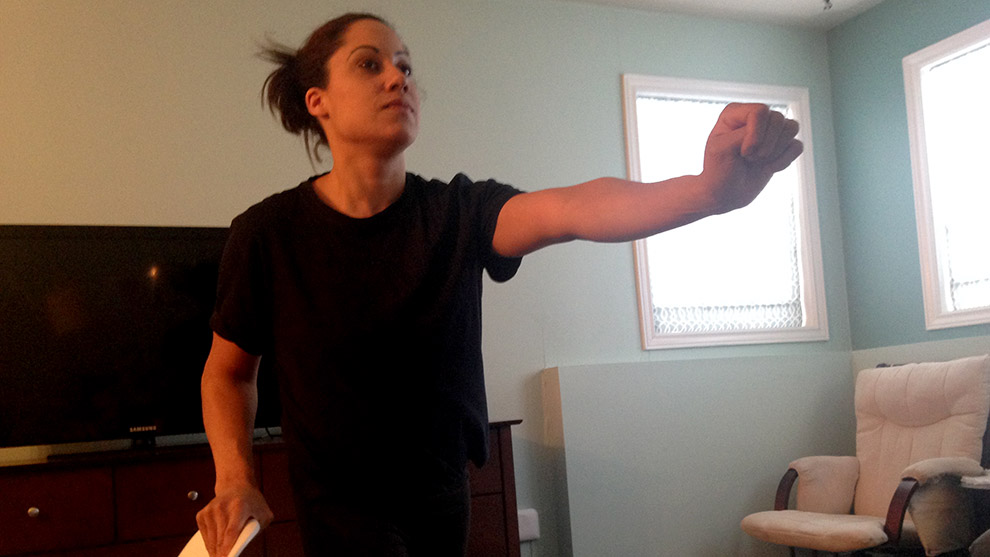Health
Not enough resources for people with cerebral palsy
Halifax woman turns to Kijiji to find exercise support

caption
Kaylie Adamski has spastic cerebral palsy and practices yoga in her living room to help maintain her mobility.
caption
Kaylie Adamski has spastic cerebral palsy and practices yoga in her living room to help maintain her mobility.Kaylie Adamski’s doctor recently told her if she didn’t start exercising she would be in a wheelchair by the time she was 30. She’s 28 now.
Adamski was born with cerebral palsy, a nervous system disorder, which is often identified within the first three years of a child’s life.
Data compiled by the Public Health Agency of Canada suggests about 45,000 people have cerebral palsy in Canada.
Adamski’s prognosis doesn’t discourage her. She takes it as another challenge.
When she was born, doctors told her parents she would never be able to sit or walk on her own. But 28 years later, she’s still walking.
Rehab gyms
Adamski tried joining gyms and attending exercise classes tailored to people with disabilities at rehab fitness centres such as Abilities in Motion.
She says exercise classes at the rehab gym are good resources. They’re taught by volunteers and students studying physiotherapy, but she says the timing of the programs don’t work for her.
“Unfortunately, the hours for most classes are in the evening from 6:30-8:30 p.m., or on weekends,” says Adamski. “I have my son, so the times aren’t ideal for me.”
She tried a chair yoga class specialized for people with arthritis, but found the class was too physical for her.
“There were ladies in their 70s that were more mobile than me,” says Adamski. “The yoga instructor tried her best, but didn’t understand CP at all.”
Limited resources
Adamski is a co-ordinator at Support Services Group Cooperative in Halifax. The group helps people with physical and mental disabilities live independently.
She says finding any resources or support can be challenging.
“Something I run into on a daily basis working with my members is a limited number of resources available for physical health and mental health,” she says.
Adamski says she tried to find local cerebral palsy programs she could get involved with because she wants to help improve the amount of support in the province, but was disappointed when she didn’t find any.
“It’s an ongoing struggle and I feel like if we had more people in the community come together, we might be able to talk more about this and get more funding from the government.”
Representatives from the IWK Health Centre and the Nova Scotia Health Authority were unable to provide any additional names of cerebral palsy support groups or associations in the province.
One local resource group, the Halifax Regional Cerebral Palsy Association, can be found online, but the organization appears to be defunct – the phone number is no longer in service and several emails went unanswered.
For now, to maintain her mobility, Adamski will continue working twice a week with a private yoga instructor she found on Kijiji.
About the author

Kathleen Napier
Kathleen Napier is currently completing her Master of Journalism (Data and Investigative) at the University of King’s College in Halifax. Special...